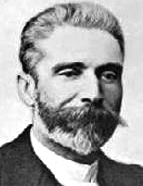

Finally, in looking at Teles’ historiographical thinking we should also note his view of collective movements and the role of “Great Men”. Following the path of positivist scientism, Teles felt that it was an unequivocal truth – corroborated by both history and the laws of biology – that, in order to be fecund, all collective transformations had to arise out of a slow process, or at least be based on pre-existing germs or deep aspirations on the part of the collectivity. He thought that history was made of great social energies, and that “great men” played a minor role in it. In the Portuguese case it seemed clear to him that the leaders did not have the capacity to influence the crowd and had proved themselves to be mere occasional instruments who symbolised the goals, desires and aspirations of the group they represented (Figuras portuguesas [Portuguese figures], 1961, pp. 80-81). A recent study on the philosophical thinking of Basílio Teles highlights his “unconscious but incoercible affection for human beings” (A. Braz Teixeira, “O pensamento filosófico...”, 2007, p. 13). To some authors this explains why, despite his belief in the presence of evil in nature and in men, he was a civic/political voluntarist, interested in historical and economic and social questions, and eager “to study, and contribute to, the solution to the country’s problems” (Domingues, 2007, p. 53). Having said this – and unlike some of his fellow republicans, such as Manuel de Arriaga, Teófilo Braga and Duarte Leite – Basílio Teles preferred to entrust the implementation of his ideas to others and to keep his distance from active political life. Teles cultivated a certain social and political isolation and appears to have chosen the role of a critical observer of society, rather than that of a man of action. There is no information to suggest that he belonged to any cultural or scientific societies in Portugal or abroad – an unusual absence for a man of his standing at the time.
Works by the author : Memórias Políticas (identification of the text, preface and indices by António da Costa Dias) Lisbon, Alfa, 1990 [1st edition 1895]; O problema agrícola (crédito e imposto), Porto, Livraria Chardron de Lello & Irmão, 1899; Estudos históricos e económicos, Porto, Livraria Chardron de Lello & Irmão, 1901; Introdução ao problema do trabalho nacional, tome III, Porto, Livraria Chardron de Lello & Irmão, 1902; Do Ultimatum ao 31 de Janeiro, Lisbon, Portugália Editora, 1968 [1st edition 1905]; As ditaduras, II - O regime revolucionário, Famalicão, Tipografia Minerva-Editora, 1911; A guerra, Porto, Livraria Chardron Lello & Irmão, 1914; A França e a Guerra de 70, Porto, Livraria Figueirinhas, 1916; Acquaviva, Porto, Livraria Civilização – Editora, 1917; Na Flandres (o episódio militar de 9 de Abril), Porto, Eduardo Tavares Martins, Suc.-Editor, 1918; Figuras portuguesas, Lisbon, Guimarães Editora, 1961.
